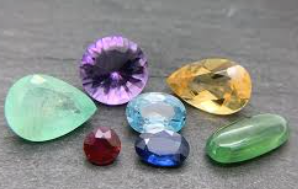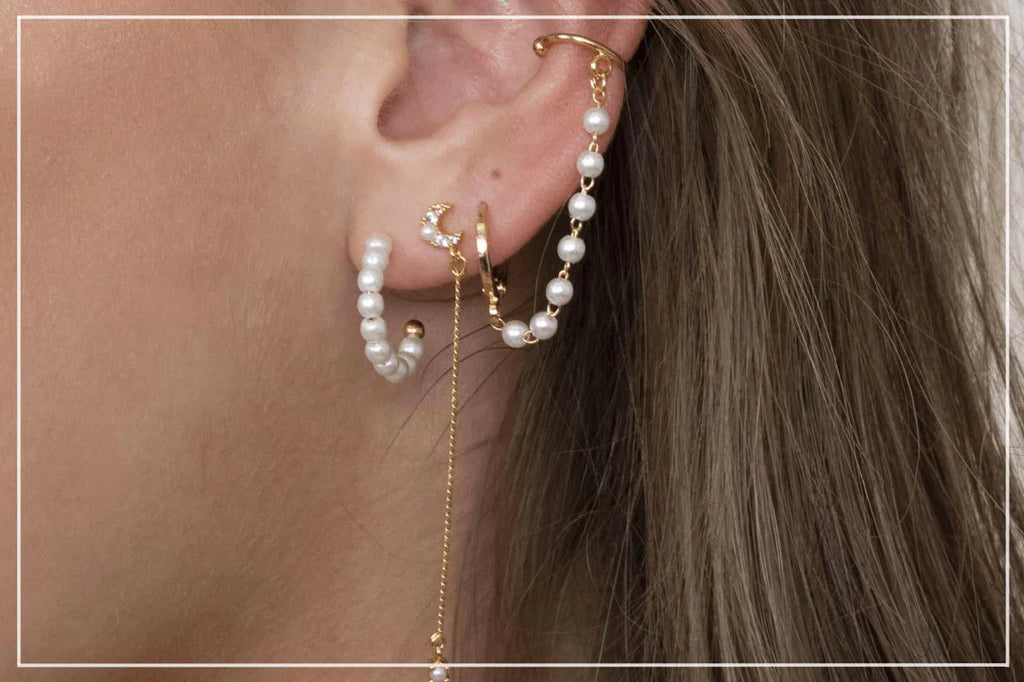
How to Care for Your Jewelry: Tips to Keep Your Pieces Sparkling and Beautiful

How to Care for Your Jewelry: Tips to Keep Your Pieces Sparkling and Beautiful
Jewelry is more than just a fashion statement—it's a valuable investment that can carry sentimental meaning, mark important milestones, or simply elevate your everyday look. Whether you’ve splurged on a precious gemstone necklace or inherited a family heirloom, keeping your jewelry in top condition is essential to maintaining its beauty and longevity. With a little care and attention, your jewelry can continue to sparkle and shine for years to come.
Here are some expert tips on how to care for your jewelry to ensure it stays as beautiful as the day you bought it:
1. Store Jewelry Properly
One of the simplest and most effective ways to care for your jewelry is to store it properly when it’s not in use. Jewelry that is left loose in a drawer or tossed around can easily get scratched or tangled.
-
Use a Jewelry Box: Store your pieces in a jewelry box with separate compartments to prevent them from scratching each other. This helps protect delicate pieces and keeps them organized.
-
Keep Pieces Separate: If you don’t have a jewelry box with individual compartments, use soft cloth pouches, small boxes, or jewelry trays to store different pieces separately.
-
Avoid Humid or Damp Environments: Humidity can cause some metals to tarnish or degrade over time. Keep your jewelry stored in a dry, cool place, away from direct sunlight and moisture.
2. Clean Jewelry Regularly
Dirt, oils, and cosmetics can accumulate on your jewelry over time, dulling its shine. Regular cleaning is essential to restore the sparkle and luster of your pieces.
-
Use a Soft Cloth: For a quick clean, gently wipe your jewelry with a soft, lint-free cloth. Microfiber cloths work well to remove dirt and oils without scratching the surface.
-
Clean with a Gentle Solution: For a deeper clean, mix a small amount of mild dish soap with warm water. Dip a soft brush (like a toothbrush) into the solution and gently scrub your jewelry, focusing on areas where dirt may accumulate, such as prongs or around gemstones. Afterward, rinse with clean water and dry with a soft cloth.
-
Use Specific Cleaners for Certain Stones: Some gemstones require special care. For example, opals and pearls are more delicate and should be cleaned with a soft cloth, while diamonds can benefit from a gentle jewelry cleaner.
3. Avoid Contact with Harsh Chemicals
Chemicals like perfumes, hairspray, household cleaners, and chlorine can damage or discolor jewelry. To protect your pieces, try to avoid exposing them to harsh chemicals.
-
Apply Cosmetics Before Jewelry: Always apply perfumes, lotions, and hairspray before putting on your jewelry. These products can leave residue on your jewelry and dull its shine.
-
Remove Jewelry Before Swimming or Cleaning: Remove your jewelry before swimming in a pool, as chlorine can tarnish metals and damage gemstones. Similarly, when cleaning or doing household chores, take off your rings or bracelets to avoid contact with harsh chemicals.
4. Handle with Care
While jewelry is designed to withstand regular wear, it’s still important to handle it with care to avoid damage.
-
Take Off Jewelry During Physical Activities: Remove your jewelry when engaging in physical activities like exercising, cleaning, or doing any task that could cause physical damage to the piece. This is especially important for rings and bracelets that may get scratched or bent.
-
Avoid Excessive Impact or Pressure: Jewelry, particularly stones set in rings or bracelets, can be damaged if dropped or subjected to high pressure. Be mindful when handling your pieces and avoid rough handling.
5. Polish Your Jewelry
Over time, even the most well-maintained pieces can develop a dull or tarnished surface. Polishing your jewelry can restore its original brilliance.
-
Use a Jewelry Polishing Cloth: For gold, silver, and platinum jewelry, a polishing cloth can help remove tarnish and bring back shine. These cloths are treated with a special cleaning solution and are safe to use on most metals.
-
Polish Metals Carefully: Be gentle when polishing metals, especially softer ones like silver, to avoid scratching or damaging the surface. If you notice deeper tarnish or marks, consider taking your jewelry to a professional jeweler for more intensive cleaning.
6. Check for Loose Stones and Settings
Regularly inspect your jewelry for any signs of wear and tear. Over time, prongs or settings may loosen, leaving your precious gemstones vulnerable to loss.
-
Examine Gemstone Settings: Check to see if the prongs holding your gemstones are still tight. If you notice any loose stones, take your jewelry to a professional jeweler for a quick fix. A loose prong or setting could cause your stone to fall out, resulting in loss or damage.
-
Repair Damaged Jewelry Promptly: If your jewelry experiences a break or crack, get it repaired as soon as possible. Prompt repairs will prevent further damage and ensure that your piece remains in excellent condition.
7. Clean Pearls and Opals with Extra Care
Pearls and opals are beautiful, but they’re also delicate. These gemstones require special care to maintain their natural glow.
-
Avoid Contact with Cosmetics: Pearls are particularly vulnerable to damage from makeup, lotions, and perfumes. Clean them gently with a damp cloth and avoid exposing them to harsh chemicals.
-
Store Separately: Store pearls and opals separately from other jewelry to prevent scratches and preserve their shine. Ideally, store them in a soft cloth pouch or box lined with velvet.
8. Take Your Jewelry to a Professional Jeweler for Deep Cleaning
While regular cleaning and care are important, it’s a good idea to have your jewelry professionally cleaned and inspected every once in a while. A jeweler will be able to clean your pieces more thoroughly and check for any issues that you may have missed, like loose stones or prongs.
-
Professional Maintenance: A jeweler can also provide rhodium plating (for white gold pieces) or other services to restore your jewelry to its original shine.
-
Regular Check-ups: It’s recommended to have valuable or heirloom pieces professionally cleaned and inspected annually to ensure that they’re in top condition.
9. Keep Your Jewelry in Mind When Traveling
Traveling can sometimes expose your jewelry to risks like loss, theft, or damage. To keep your jewelry safe while on the go:
-
Travel Cases: Use a jewelry travel case with compartments to keep your pieces safe and organized while traveling.
-
Wear Your Most Valuable Pieces: If you’re traveling with high-value jewelry, it’s safer to wear it rather than storing it in luggage.



